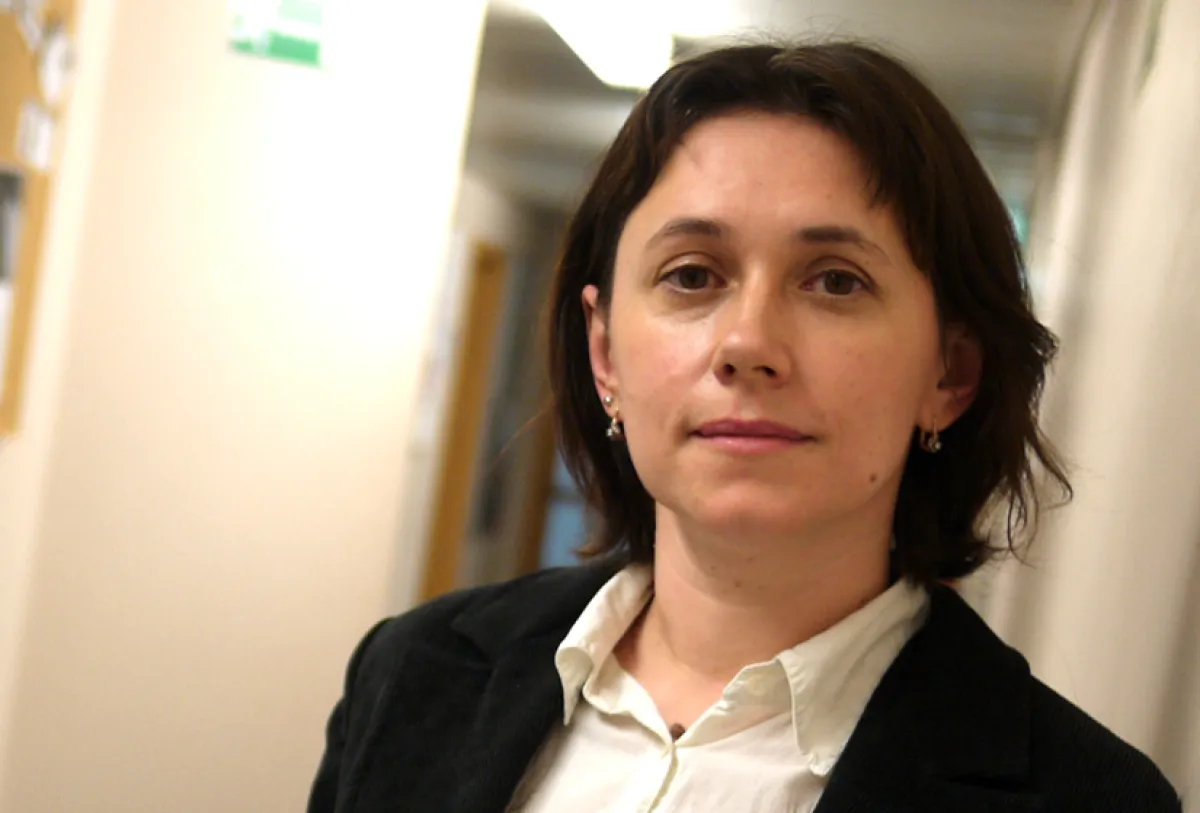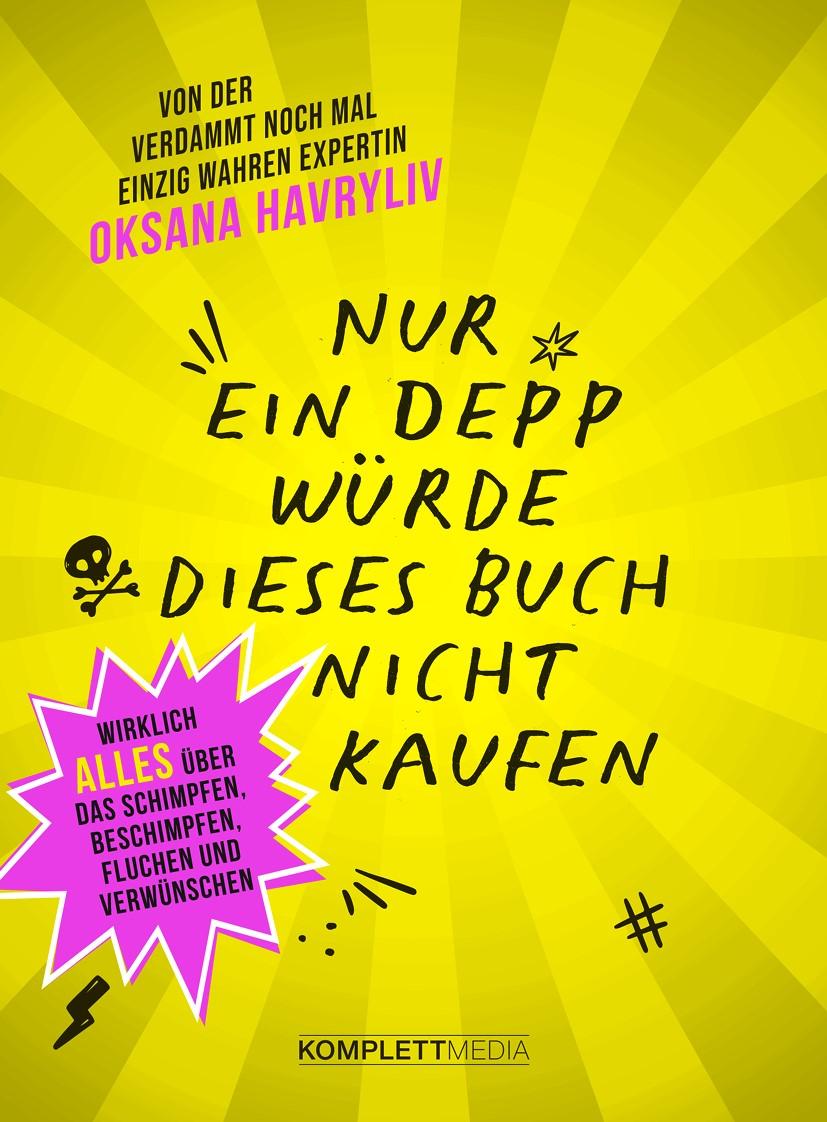The world as a global kindergarten

Dr. Oksana Havryliv teaches and researches as a linguist at the University of Vienna. Initially as a joke (at a Viennese Heurigen), she chose swear words as the topic for her doctoral thesis and has now been studying swearing for 30 years. In addition to the reviewed book, she also wrote the "Deutsch-Ukrainisches Schimpfwörterbuch" and Schimpfen zwischen Scherz und Schmerz
What is a swear word and what is a curse? How should you behave when someone swears or curses? What is the best way to react if you have been insulted? In the past, it was primarily parents of small children and nursery school teachers who were faced with these questions. Learning to manage swear words is an important stage in language development. With empathy, explanations and patience, almost all children can learn how to deal with "dirty words". Adult role models are particularly helpful in this regard.
However, since the advent of social media, more and more adults are acting like children with behavioural problems. The big difference is that adults should be very aware of the damage they cause.
Hate speech is rightly considered a precursor to physical aggression. It endangers not only our coexistence but fair discourse, a prerequisite for any functioning democracy. Despite this, or rather because of it, politicians all over the world use verbal insults to push the limits of what can be said and mobilize their supporters.
Little wonder that these days it's not just parents and kindergarten teachers who are concerned with the swearing of their young charges. Sociologists, political scientists and conflict specialists are studying this rising tide of verbal aggression in an attempt to stem it. Psychologists treat victims of bullying. There are courses to train people how to defend themselves against harassment. Courts have to decide whether a statement can be considered a free expression of opinion or whether it should be punished as an insult or incitement to hatred. Calls for tougher laws against verbal aggression on the internet are becoming more frequent and strident .
An important and entertaining contribution on this topic comes from Ukranian-born linguist Oksana Havryliv. Based at the University of Vienna, she has spent decades researching "maledictology" (the branch of psychology that investigates emotional expression through swearing).
 KomplettMedia
KomplettMediaOksana Havryliv | Only a fool wouldn't buy this book | Komplett Media | 224 pages | 22 EUR
As a scientist, she is less interested in moral judgments, that is, whether something is good or bad. Instead, she studies the symptoms and causes without judging them. Oksana Havryliv provides linguistic analyses of common swear words and insults and delves into the psyche of people who use them.
Mostly they do it to let off steam, to relieve stress or to help cope with physical pain. Swearing together strengthens bonds and alleviates negative feelings such as powerlessness and helplessness. It doesn't always have to be about insulting someone.
When comparing swear words, the book develops into an informative and entertaining journey through different cultures. For Catholics, most swearing is based on blasphemy (God damn it! Jesus Christ! God damn you!) In France, Czechoslovakia, Ukraine and Germany, emphasis is on the scatological (Shit! Crap! Arse!), which is why we speak of 'shit cultures'. In the USA, Russia and Serbia, sexual slurs predominate. (Fuck! Cock! Bitch!) In the East, the worst curses are aimed at members of the family (I fart in your father's beard!)
A real swearing superpower is Yiddish - (You shall have scabies on your arse and arms too short to scratch!
All your teeth shall fall out. Except for one, so that you know what toothache feels like). These Yiddish examples demonstrate how cursing can be malicious, creative and funny all at the same time.
Name-calling and cursing being part of every culture, it stands to reason that both phenomena are as much a part of the human condition as speaking and walking on two legs.
The journey into the abyss of language and the comparisons between swearing in various cultures reveal a fascinating paradox: despite our fundamental differences, as humans we all share certain similarities.
In addition to these abstract observations, Oksana Havryliv's book also provides practical suggestions and advice: If you analyse the usually rather clumsy and simple linguistic patterns of swearing and insults, they lose their impact and become less hurtful. Instead, they simply show up the weakness or verbal limitations of the aggressor.
Article series "Scolding, insulting, swearing and cursing"
The book "Only a fool wouldn't buy this book" is a journey through the European culture of maledictology.
LR will publish a series of articles by authors from all over the world on this universal topic.
These can be serious, personal experiences, humorous observations, factual analyses or fictional texts in which swearing and cursing play a role.



